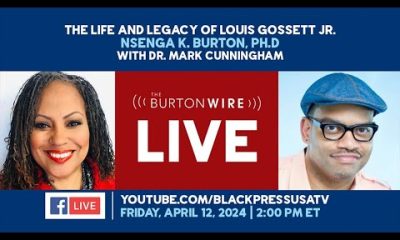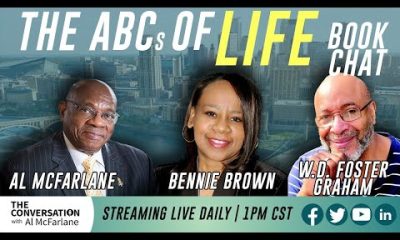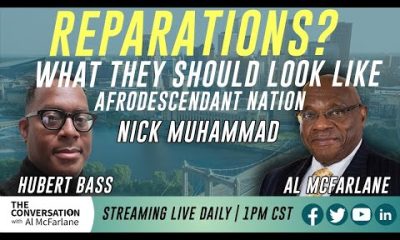Government
Congressional Black Caucus Launches Census 2020 Taskforce
LOS ANGELES SENTINEL — The Congressional Black Caucus will launch a new taskforce that will focus on the upcoming 2020 Census and the legacy of under counting the African American community. Members of the CBC will meet with stakeholders and leading professionals to discuss the current state of play. The Caucus will also discuss the tools required for effective outreach to hard to count communities across the United States. The taskforce will be led by Congressman Steven Horsford (D-NV). Below, Chairwoman Bass and members of the taskforce released the following statement:
The Congressional Black Caucus will launch a new taskforce that will focus on the upcoming 2020 Census and the legacy of under counting the African American community. Members of the CBC will meet with stakeholders and leading professionals to discuss the current state of play. The Caucus will also discuss the tools required for effective outreach to hard to count communities across the United States. The taskforce will be led by Congressman Steven Horsford (D-NV). Below, Chairwoman Bass and members of the taskforce released the following statement:
“This time around, we are facing a big question regarding how the census is going to be administered in 2020 under the Trump Administration. With the census becoming digital, can you imagine working families receiving a postcard telling them to go online to fill out their census form? Many Americans might not have access to a computer or broadband services. That is why the Black Caucus is taking the lead to begin the work now. Through this taskforce, and under Congressman Horsford’s leadership, the Black Caucus will meet with African American leaders from around the country to discuss the current state of play and the tools needed for effective outreach to hard to count communities. Our community must be counted,” said Congresswoman Karen Bass, Chair of the Congressional Black Caucus.
“The Constitution declares that we must count all persons in this country. The Trump administration has taken coordinated action specifically to discourage and frighten people away from participating in the 2020 census, and now we are fighting back. I am taking part in this taskforce for my constituents in Nevada. Undercounting urban communities like mine can result in an unfair distribution of congressional seats and deny communities of color, specifically Black communities, access to representation in Congress. We only get one chance every ten years to get this right. Let’s make it count,” said,” Congressman Horsford, Chair of CBC Census 2020 Taskforce.
“Vital services for each community are directly tied to Census Counts. I must act as a leader to ensure every person is counted on the 2020 Census which is why I am proud to join the CBC’s Census Task Force. We already know that Black communities are undercounted, underscored by the fact that my district, NY-09, has one of the hardest-to-count districts in America. We must empower Black communities to understand the power of filling out the Census, so each community receives access to critically-needed resources in their backyards,” said Congresswoman Yvette Clarke (NY-09).
“I am proud to join my colleagues to ensure that our census is not weaponized to silence communities of color. States like my home state of Texas would lose billions to fund essential programs and fair representation in Congress if this administration wins the fight to silence our communities–that’s why this task force is critically needed,” said Congressman Marc Veasey (TX-33).
Background
The legacy of undercounting African Americans in the census dates to the first census count in 1790.[1] During the writing of the U.S. Constitution in 1787, delegates debated over the number of seats in the House of Representatives. In 1790, a compromise between the northern and southern states resulted in a decision for enslaved Africans to be counted as three-fifths of a person for Congressional representation and taxation.
African Americans are still undercounted in the census in current times. According to the Decennial Statistics Studies Division of the Department of Commerce, in 1990 the agency estimated “a net undercount of about 4 percent for African Americans.”[2] This number was lowered to “2 percent – around 800,000 people – in the 2000 Census, but the most recent Census in 2010 showed no significant change to the black undercount, despite the net undercount being the lowest it had been in history.”[3]
Every decade the U.S. Constitution requires a census count of every resident in every household, and an accurate count is critical to the foundation of our democracy. Data gathered by the census is used to determine how many congressional seats and electoral college votes each state receives, as well as the drawing of federal, state, and local government legislative boundaries. Furthermore, this data is also used to direct over $800 billion annually in federal dollars to states and local communities that impact health care services, housing, schools, and economic development plans among other priorities.[4]
There is a perennial concern about black households getting undercounted in the census. During the last count in 2010, African Americans were undercounted by over 800,000.[5] Therefore, some African Americans may also live in communities where the political districts do not reflect their policy needs. Moreover, undercounting African Americans in the 2020 census could have real consequences because “African-American children and families are disproportionately affected by poverty and federal programs designed to alleviate the impact of poverty.”[6] Specifically, some of the federal programs impacted by census data include:[7]
- Head Start Program – A federal program that provides early childhood education to kids. African American children account for 29% of kids in this program for low-income families.[8]
- Title I Grants – These grants provide federal resources to schools with high numbers of low-income children intended to help all students fulfill state academic requirements.[9]
- Special Education Grants – Assists schools in meeting the requirements of the Individuals with Disabilities Education Act (IDEA). These grants are used to assist students with disabilities. In 2012-2013, approximately 15% of African American children needed IDEA resources.[10]
- Child Care and Development Fund – This fund helps low-income parents access childcare so that they can go to work or school. African American children represented 41% of children in this program in 2015.[11]
- SNAP – The Supplemental Nutritional Assistance Program (SNAP) is the nation’s most extensive domestic food assistance program, serving 42.1 million individuals each month. Around 26% of African Americans received SNAP benefits in 2015.[12]
- National School Lunch Program – This program provides free or reduced-price meals to disadvantaged students.[13]
- Section 8 Housing Program – A federal program that subsidizes the rents of low-income individuals to secure affordable housing. African Americans comprised 45% of the recipients in this program in 2010.[14]
- Medicaid – A joint federal-state program that finances the delivery of primary and acute medical services to a diverse low-income population. An estimated 16 million African Americans enrolled in this program in 2012.[15]
- Pell Grants – Data is used from the census to factor Pell grants for college.
- Highway spending – Funding for national infrastructure is apportioned according to census data.
- Small businesses – Data from the census helps small businesses in their competitiveness.
- Large companies – Big businesses rely on census data for hiring and demographic data.
This article originally appeared in The Los Angeles Sentinel.
Alameda County
Board of Supervisors Accepts Certification of Signatures, Will Schedule Recall Election May 14
The Alameda Board of Supervisors unanimously accepted the certification of the results of the valid signatures submitted for the recall of District Attorney Pamela Price on Tuesday evening. The Board will set the election date at a special meeting on May 14. Before the meeting, recall proponents and opponents held separate press conferences to plead their cases to the Board and residents of Alameda County.
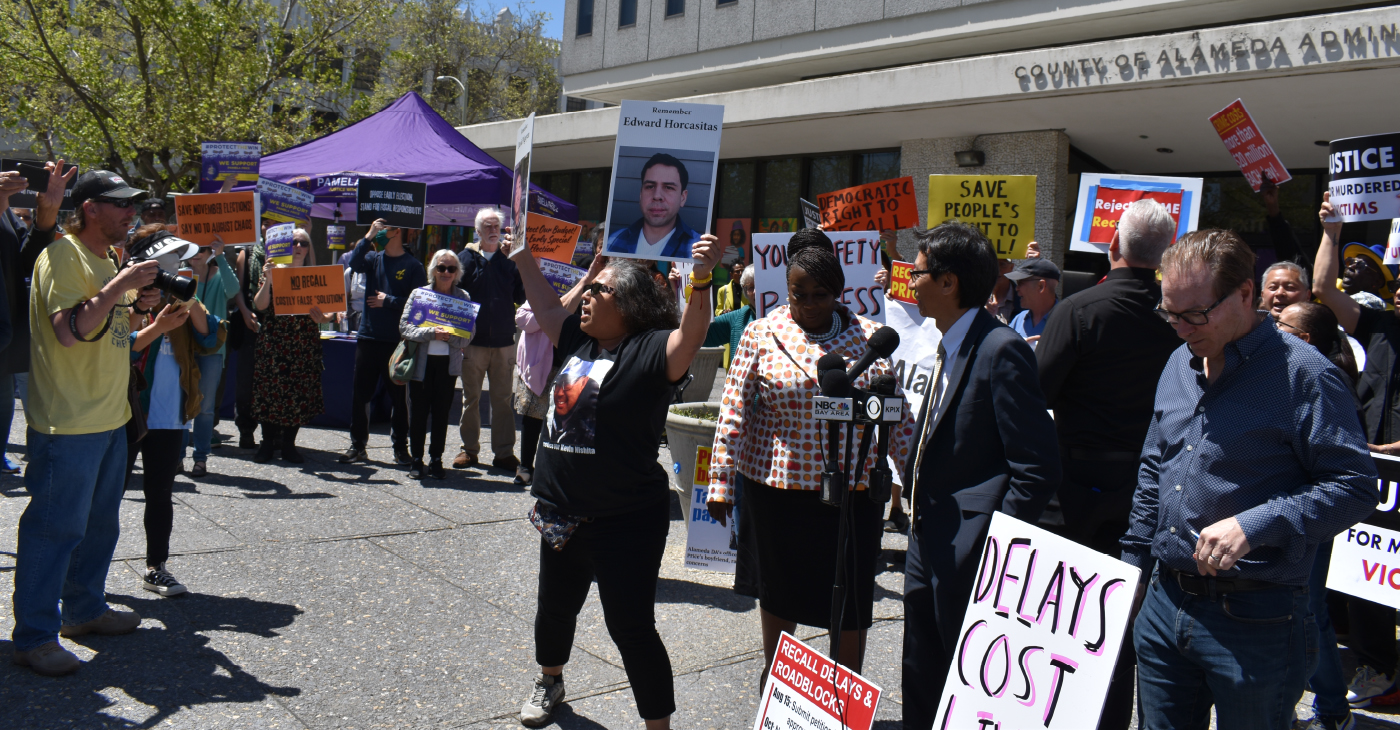
By Magaly Muñoz
The Alameda Board of Supervisors unanimously accepted the certification of the results of the valid signatures submitted for the recall of District Attorney Pamela Price on Tuesday evening. The Board will set the election date at a special meeting on May 14.
Before the meeting, recall proponents and opponents held separate press conferences to plead their cases to the Board and residents of Alameda County.
Price, who up until this point has made little public comment about the recall, held her press conference in Jack London to announce that the California Fair Political Practices Commission has opened an investigation into the finances of the Save Alameda For Everyone (SAFE) recall campaign.
The political action committee (PAC), Reviving the Bay Area, has been the largest contributor to the SAFE organization and has allegedly donated over half a million dollars to the recall efforts.
“Between September 2023 and November 2023, [Revive the Bay Area] donated approximately $578,000 to SAFE without complying with the laws that govern all political committees in California,” Price said.
Price accused the recall campaigns of using irregular signature-gathering processes, such as paying gatherers per signature, and using misleading information to get people to sign their petitions.
SAFE held their own press conference outside of the Alameda County Administration Building at 1221 Oak St. in Oakland, once again calling for the Board to certify their signatures and set a date for the recall election.
Their press conference turned contentious quickly as Price’s “Protect the Win” supporters attempted to yell over the SAFE staff and volunteers. “Stop scapegoating Price” and “Recall Price” chants went on for several moments at a time during this event.
Families of victims urged the Board to think of their loved ones whose lives are worth much more than the millions of dollars that many opponents of the recall say is too much to spend on a special election.
The Registrar of Voters (ROV) estimates the special election could cost anywhere from $15 to $20 million, an amount that is not in their budget.
The Board was presented with several options on when and how to conduct the recall election. They have to set a date no less than 88 days or more than 125 days after May 14, meaning the date could fall anywhere from late July to September.
But the County charter also states that if a general election takes place within 180 days of their scheduling deadline, the Board could choose to use the November ballot as a way to consolidate the two events.
In the event that Price is recalled, the Supervisors would appoint someone to fill the vacancy, though neither the County nor the California charter specifies how long they would have to pick a replacement.
The appointee would serve as district attorney spot until the next election in 2026. Afterwards, either they, if they run and win, or a newly elected candidate would serve the rest of Price’s six-year term until 2029. Price is unique as the only district attorney wo serves a term of six years.
The Board acknowledged that they knew last fall that this recall would come with its own set of complications when Measure B, which changed the local recall charter to match California’s, was first brought to their consideration.
Supervisors Nate Miley and David Haubert opposed discussing the measure, stating that the public would think that the Board was attempting to influence the recall campaign that had already taken off months prior.
“I think ultimately this feels like it’s going to end up in court, one way or the other, depending on who files what,” Haubert said.
Price’s legal team told the Post that the district attorney intended to consider all legal options should the recall election take place.
Miley stated that while he was in support of the amendment to the charter, he did not think it was right to schedule it for the March ballot as it would ultimately cause confusion for everyone involved.
“It has produced some legal entanglements that I think, potentially, could’ve been avoided,” Miley said.
California Black Media
State Ed Chief Tony Thurmond Pushes Bill to Train Educators
State Superintendent of Public Instruction (SSPI) Tony Thurmond is advocating for comprehensive training for teachers in reading and math, emphasizing the urgent need to improve student academic outcomes across California. On April 24, during testimony in the Senate Education Committee, Thurmond backed Senate Bill (SB)1115, which aims to provide evidence-backed educator training. The committee passed the bill with a 7-0 vote.
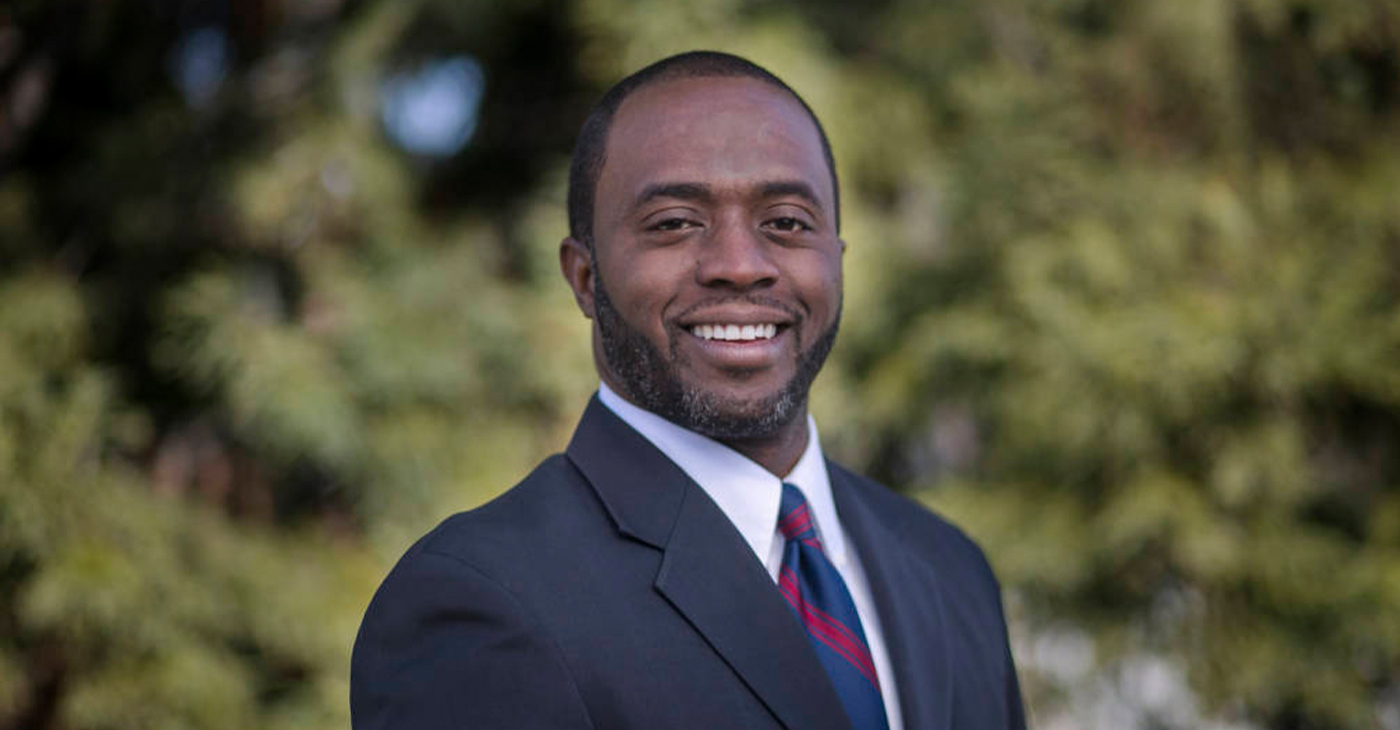
By California Black Media
State Superintendent of Public Instruction (SSPI) Tony Thurmond is advocating for comprehensive training for teachers in reading and math, emphasizing the urgent need to improve student academic outcomes across California.
On April 24, during testimony in the Senate Education Committee, Thurmond backed Senate Bill (SB)1115, which aims to provide evidence-backed educator training. The committee passed the bill with a 7-0 vote.
Thurmond pointed out to the committee that existing funding for educator training in literacy and math only covers about one-third of California’s educator workforce. SB 1115, Thurmond said, would fund the remaining two-thirds.
“This is an issue of moral clarity,” according to Thurmond. “In the fifth-largest economy in the world, and in an age when we have access to substantial brain science about how students learn, it should be unacceptable to train only some educators in the best strategies to teach essential skills.”
SB 1115 incorporates multiple research-backed methods, including phonics, and it aligns with the California ELA/ELD Framework, which encourages biliteracy and multilingualism.
Thurmond emphasized the moral imperative behind the push for enhanced training by noting that 70% of incarcerated adults struggle with reading or are illiterate.
“Every child should feel supported as they learn to read and every teacher should feel confident in their ability to support students’ foundational literacy,” Thurmond said. “SB 1115 is about ensuring that all children have the opportunity to read by third grade, and that all children have a shot at the life-changing outcomes that come from early literacy.”
The next step for SB 1115 is a hearing in the Senate Appropriations Committee on May 6.
Community
Gov. Newsom Issues Proclamation Declaring Day of Remembrance for the Armenian Genocide
Last week, California Gov. Gavin Newsom declared April 24 as “a day of remembrance of the Armenian genocide.” This proclamation marks the first holiday honoring the victims and survivors of the systemic genocide of the Armenian people by the Ottoman Empire on the same day in 1915. The genocide targeted Armenians, who were a minority group that were forcefully deported and killed in the early 20th century.

By California Black Media
Last week, California Gov. Gavin Newsom declared April 24 as “a day of remembrance of the Armenian genocide.”
This proclamation marks the first holiday honoring the victims and survivors of the systemic genocide of the Armenian people by the Ottoman Empire on the same day in 1915. The genocide targeted Armenians, who were a minority group that were forcefully deported and killed in the early 20th century.
“We honor the strength and resilience of the Armenian people, who have built new lives and thriving communities in all corners of the globe,” the proclamation stated.
The genocide resulted in the deaths of over 1.5 million Armenian men, women, and children. This great loss suffered by the community led to the displacement and deportation of many families, many of whom settled in California for refuge.
The declaration noted that the state government is committed to protecting the safety and wellbeing of the Armenian community. The state government has taken action to address racial, ethnic, and religious hate through reinforced security at houses of worship, and cultural centers. The state has also implemented a comprehensive “Stop the Hate” program that promotes tolerance and support for victims. An anonymous hotline and internet resource have also been set up to report for victims and witnesses of hate acts.
The California Armenian Legislative Caucus Foundation sponsored an educational lunch to commemorate the 109th anniversary of the genocide.
-

 Community2 weeks ago
Community2 weeks agoFinancial Assistance Bill for Descendants of Enslaved Persons to Help Them Purchase, Own, or Maintain a Home
-

 Activism4 weeks ago
Activism4 weeks agoOakland Post: Week of April 3 – 6, 2024
-

 Business3 weeks ago
Business3 weeks agoV.P. Kamala Harris: Americans With Criminal Records Will Soon Be Eligible for SBA Loans
-

 Activism3 weeks ago
Activism3 weeks agoOakland Post: Week of April 10 – 16, 2024
-

 Community3 weeks ago
Community3 weeks agoAG Bonta Says Oakland School Leaders Should Comply with State Laws to Avoid ‘Disparate Harm’ When Closing or Merging Schools
-

 Community2 weeks ago
Community2 weeks agoOakland WNBA Player to be Inducted Into Hall of Fame
-

 Community2 weeks ago
Community2 weeks agoRichmond Nonprofit Helps Ex-Felons Get Back on Their Feet
-

 Community2 weeks ago
Community2 weeks agoRPAL to Rename Technology Center for Retired Police Captain Arthur Lee Johnson

